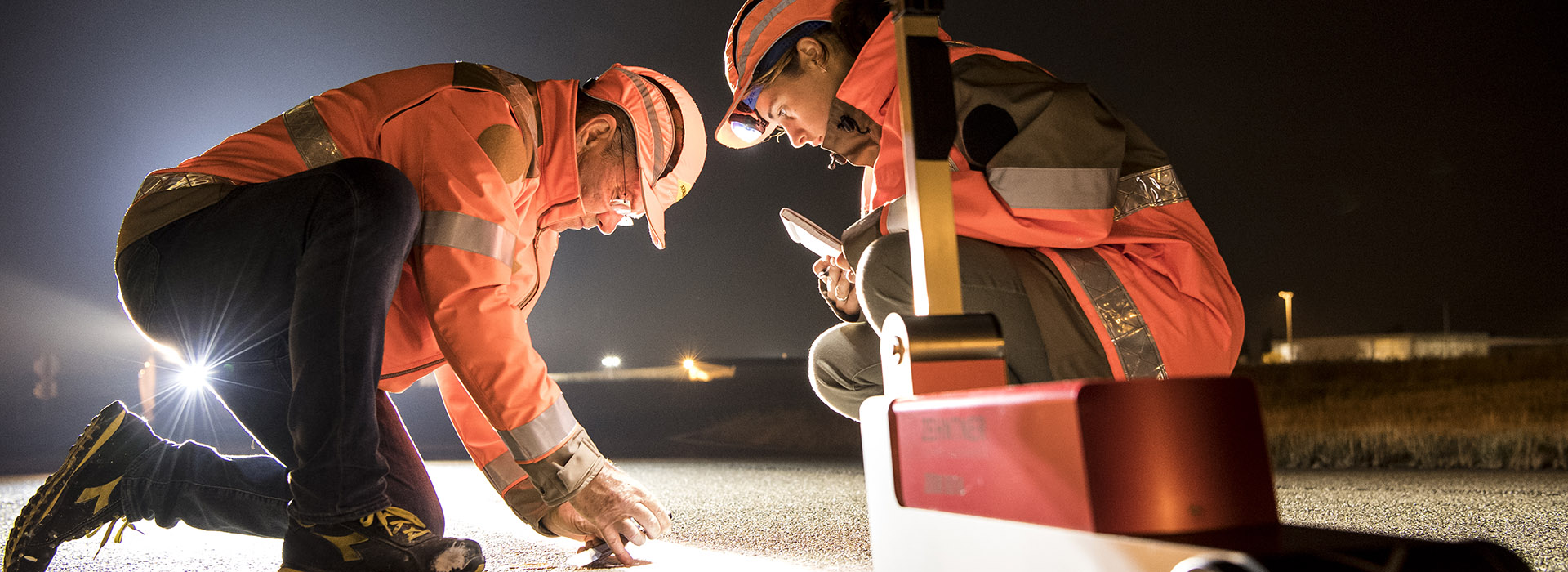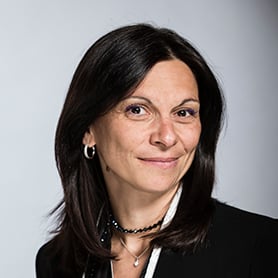Sandra Chabrier-Breil Martin: Safety Starts with Respect
Being open to different cultures and a love of big projects were key elements that led to Sandra Chabrier-Breil Martin's current role as a Director at Aximum. Here Sandra talks to dss+ on why being a free spirit, conquering fears, and having a moral compass are essential leadership companions.


Sandra Chabrier-Breil Martin
Director, Aximum, Colas Group
Q.
What influenced your early career, and how has it progressed?
I was born in Tunisia but lived in Reunion Island from the age of two. As a child growing up, I visited a major construction site for a big dam which sparked my interest in civil engineering. Another aspect of my childhood that impacted my career choice was the diversity of life in Reunion Island, where it was perfectly normal to celebrate each other's culture and beliefs. So when I graduated with an engineering degree in France, I knew a 9 to 5 office environment in one place was not for me. I wanted my helmet, my boots, and to be on-site experiencing new places and different people. So in 1994, following my studies, I started work as a site manager in the energy transmission line sector. At the time, I was one of the few graduates and even fewer women, but I was determined to learn from those around me and was lucky to become part of a fantastic team. When I left in 2010, I was the COO for all transmission and distribution with a turnover of $70m and was responsible for 150 people. But I felt I needed to challenge myself and lead a big project from scratch. When I got a once-in-a-lifetime opportunity to take on a $1.3bn solar project in Singapore with responsibility for $300m, I jumped at the chance. It was a real test as, at that point, my English wasn't great, and I had to learn everything from scratch without the support and security of my previous team around me. At the same time, I was no longer a young engineer at the start of her career and had the added pressure to deliver results. But it was a four-year journey I'm glad I took as it made me test myself, conquer my fears and rise to the challenge.
"You can't lead if there is something you don't understand. So it's essential to learn as much as possible and be prepared to put yourself on the front line in the process."
– Sandra Chabrier-Breil Martin, Director, Aximum, Colas Group
Q.
What elements of the more recent part of your career journey are you most proud?
I'm most proud of a project consisting of five million working hours delivered without any major accidents. This was an outstanding achievement as we had to build new teams, so everyone was working together for the first time and from 12 different countries. I'm also proud that within our management team, there were no changes in the four years we were together for the project. Like any team, we had our differences of opinion, but we were always able to work through them as our goals were aligned and we were determined to play a significant role in the project's success. This consistency meant we were able to attract and develop talented young engineers. The fact that we took a long-term strategy to nurture young talent on a relatively short-term project was very satisfying. As a result, I often come across some of those trainees who are now project managers themselves.
Q.
You display a commitment to following your own path when it comes to leadership. How can this approach effect change?
In terms of leadership, you have to dive into the unknown. You can't lead if there is something you don't understand. So it's essential to learn as much as possible and be prepared to put yourself on the front line in the process. You will inevitably be tested, but if you can voice opinions and show resilience while staying true to your values, then you will command leadership respect. While judged on results, showing commitment to reaching goals by showing courage and fighting the right battles is a powerful way to galvanise teams. I was also able to use my multi-cultural upbringing to show there is more than one business model out there. I believe introducing more diverse thinking, and expertise should not be seen as a short-term fix. On the contrary, it opens the door to improving value, but it has to be done with a long-term view. So if there are talented engineers in India or construction site managers from the Philippines we need to hire, let's find ways to ensure they have a long term future with the company and are incentivised to commit their talent to help grow the company.
"Safety starts with respect. If you respect your colleagues, whatever their background and culture, then It becomes part of your values and moral compass to ensure that a safe working environment is the norm, not the exception."
– Sandra Chabrier-Breil Martin, Director, Aximum, Colas Group
Q.
How can we promote safety and care of communities and the environment to the top of everyone's business agenda?
Safety starts with respect. If you respect your colleagues, whatever their background and culture, then It becomes part of your values and moral compass to ensure that a safe working environment is the norm, not the exception. When you don't nurture that respect, you lose compassion, and the connection with safety is weakened. Indeed, we risk dehumanising safety when it's simply a set of numbers on a piece of paper or represented as working days lost. By talking about why an accident has occurred and the consequences, including pictures of the injury, we reconnect the human element and show the reality of poor safety behaviours. Similarly, with local communities and the environment, it's only by seeing problems with your own eyes that the connection is made. I remember visiting a site in the Philippines and was shocked to hear that local children did not have enough food. So I made a pledge that no one in the community should go hungry and put in place a system of regular monthly food distributions to those who needed it. As a team, we also installed a health centre and built a classroom. The sums involved were relatively small for a large corporation, but they made a huge difference. We not only created a strong connection with the local community, but it also brought us closer together as a team. Again, if we respect each other then compassion blossoms.
Q.
What would you change to encourage more females into engineering roles?
The first issue is to highlight engineering's potential value as a career choice, rather than framing it as only suitable for those with a solid mathematical background. A more balanced approach to what it takes to succeed in engineering would encourage more female students to consider it. The second issue is to make sure we don't lose female engineering students early on in their careers due to a lack of choice if they decide to start a family. The go-to solution is often to allow more maternity or paternity leave, yet it's more about having the flexibility to work around childcare hours. Additionally, for young engineers starting their careers, the cost of childcare can be prohibitive, which sees them leaving work to look after their family. So we need to work on a system that helps cover childcare costs for those who need it through the tax system, for example, so that we are not losing talent. It's an investment in our future and women are a big part of that future.
"We need to work on a system that helps cover childcare costs for those who need it... so that we are not losing talent. It's an investment in our future and women are a big part of that future."
– Sandra Chabrier-Breil Martin, Director, Aximum, Colas Group